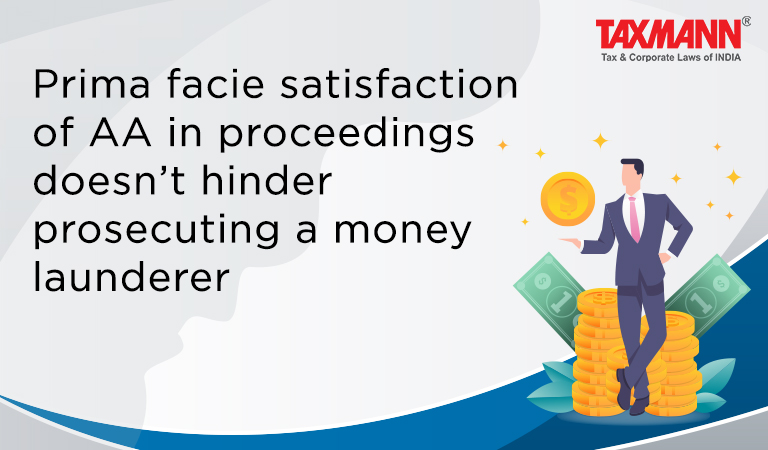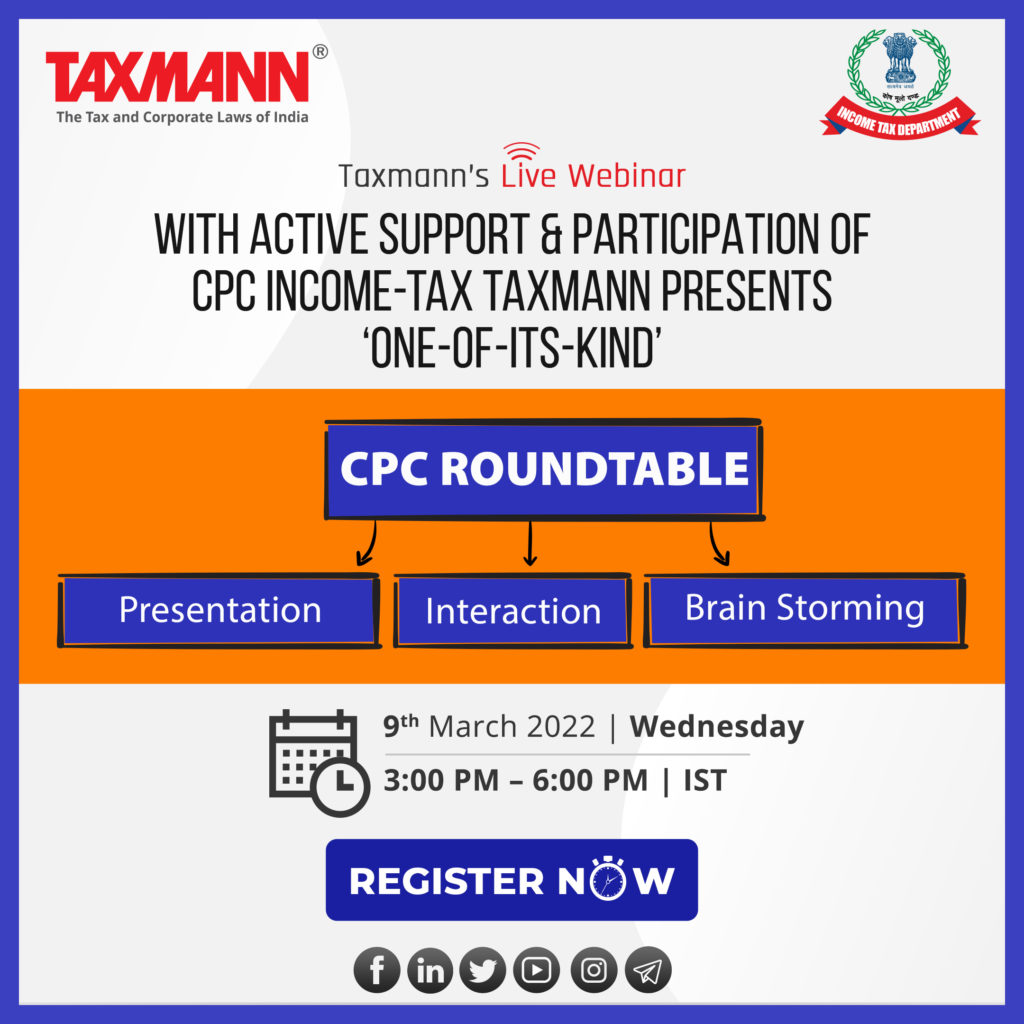Prima facie satisfaction of AA in proceedings doesn’t hinder prosecuting a money launderer
- Blog|News|FEMA & Banking|
- 3 Min Read
- By Taxmann
- |
- Last Updated on 17 February, 2026

Case Details: Dhayanidhi Alagiri v. Directorate of Enforcement, Chennai - [2022] 135 taxmann.com 224 (Madras)
Judiciary and Counsel Details
-
- S. Vaidyanathan and Dr. G. Jayachandran, JJ.
- Ms. P. Bagyalakshmi for the Petitioner.
- R. Sankaranarayan, Asstt. Solicitor General of India for the Respondent.
Facts of the Case
A case was registered against the petitioner and two others for the offences under section 120B, read with sections 447, 420, and 34 of I.P.C. and section 3(1)(ii) of Tamil Nadu Property (Prevention of damage and Loss) Act, 1992 (“TNPPDL Act, 1992”) and section 6 read with sections 3(a) and 4(a) of the Explosive Substances Act.
Subsequently, the offences disclosed commission of the scheduled offence by the accused persons, the Enforcement Directorate was satisfied that there was a prima facie case of an offence of money laundering as defined under section 3 and punishable under section 4 registered and took up the investigation as per the provisions of the PMLA.
The Enforcement Directorate issued the Provisional Attachment Order [PAO] and submitted a complaint before the Adjudicating Authority along with copies of relied upon documents. The Adjudicating Authority after taking cognizance of the complaint issued a show-cause notice to answer the allegation that the subject properties, which were provisionally attached, were purchased out of illegally acquired funds or out of proceeds of crime and fixed personal hearing.
The petitioner gave a detailed reply explaining the legitimacy and the source of funds, from which, the subject properties were purchased. Authority found that there was no material to substantiate the contentions of the respondents made to justify the Provisional Attachment of the petitioner’s property dubbed as proceeds of crime.
The petitioner argued that when the adjudicating authority had held that the properties sought to be provisionally attached did not fall within the meaning of proceeds of crime, the plea to confiscate the same by section 8(5) of the PMLA, was premature, illegal, and beyond the scope of sections 45 and 70.
The High Court observed that the Adjudicating Authority found the listed properties, which are in the name of the petitioner, are not proceeds of crime, at the same time, it has confirmed the PAO in respect of the company in which, the petitioner has a pecuniary interest.
Consequently, in view of section 70 even assuming the finding of the Adjudicating Authority has reached finality, the summons issued to the petitioner cannot be treated as premature or illegal, since the petitioner is liable to face the trial both in his individual capacity as well as a person-in-charge and responsible for the conduct of the business of the company, which has alleged to have contravened the provisions of the PMLA.
The petitioner further argued that the respondent is not authorised to file a complaint against the petitioner without registering F.I.R. under section 154 of Cr.P.C.
High Court Held
The Court held that both sections 44 and 45 of the PMLA commence with the non-obstante clause, indicating the complaint in writing by a duly Authorised Officer to be taken cognizance by the learned Special Judge without the accused being committed, notwithstanding anything contained in the Cr.P.C. 21.
In view of the above, this Court has no hesitation to hold that the plea of the petitioner/A3 regarding locus of the respondent to file the complaint without registering F.I.R. under section 154 of Cr.P.C. is unfounded and held against the petitioner. Thus, the instant Petition is devoid of merits and the High court dismissed the appeal.
Check out Taxmann's Live Webinar with CPC Income-Tax! The 'One-of-a-Kind' – CPC Roundtable Presentation | Interaction | Brain Storming 🗓️ 9th March 2022 (Wednesday) | 🕒 3:00 PM – 6:00 PM (IST) 👩💻👨💻 Register Now for FREE! (Limited Slots Available): https://taxmann.social/HxkX 💬 ASK from CPC You can also raise your concern(s)/suggestion(s) with CPC regarding Registration, E-filing, Processing, Refund and Rectification related issues. CPC officers will take up the issues during the live event. Coverage of the Webinar & the Speakers: ✔️ Welcome Address & Moderator| Mukesh Patel | International Tax Expert ✔️ Keynote Address | Dr Sibichen Mathew | Director of Income-tax | CPC-ITR
Disclaimer: The content/information published on the website is only for general information of the user and shall not be construed as legal advice. While the Taxmann has exercised reasonable efforts to ensure the veracity of information/content published, Taxmann shall be under no liability in any manner whatsoever for incorrect information, if any.

Taxmann Publications has a dedicated in-house Research & Editorial Team. This team consists of a team of Chartered Accountants, Company Secretaries, and Lawyers. This team works under the guidance and supervision of editor-in-chief Mr Rakesh Bhargava.
The Research and Editorial Team is responsible for developing reliable and accurate content for the readers. The team follows the six-sigma approach to achieve the benchmark of zero error in its publications and research platforms. The team ensures that the following publication guidelines are thoroughly followed while developing the content:
- The statutory material is obtained only from the authorized and reliable sources
- All the latest developments in the judicial and legislative fields are covered
- Prepare the analytical write-ups on current, controversial, and important issues to help the readers to understand the concept and its implications
- Every content published by Taxmann is complete, accurate and lucid
- All evidence-based statements are supported with proper reference to Section, Circular No., Notification No. or citations
- The golden rules of grammar, style and consistency are thoroughly followed
- Font and size that’s easy to read and remain consistent across all imprint and digital publications are applied




 CA | CS | CMA
CA | CS | CMA
